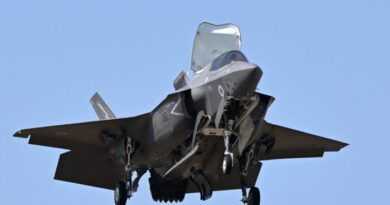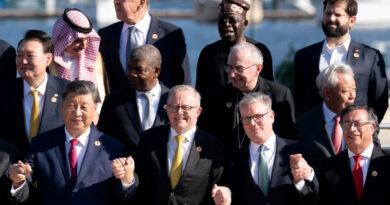Samoan Congresswoman Warns Pacific Neighbours Against CCP’s ‘Strings Attached’ Funds
Congresswoman Aumua Amata Coleman Radewagen has described Beijing as a ‘wolf in sheep’s clothing.’
Pacific Islands nations that sign agreements with the Chinese Communist Party (CCP) to advance their economic interests need to understand the implications of doing so, Rep. Amata Coleman Radewagen (R-A. Samoa) has warned.
She represents American Samoa, the southernmost territory of the United States, situated 3,500 kilometres (2,200 miles) southwest of Hawaii. It has a population of slightly less than 44,000 people but, being a U.S. protectorate, it is in no need of Beijing’s assistance.
Its neighbours are similarly small countries whose low taxation bases mean they struggle to pay for infrastructure and, in some cases, basic public services such as health and education, and rely heavily on foreign aid.
While Guam also comes under U.S. control, and New Caledonia, French Polynesia, Wallis and Futuna, and Clipperton are French territories, the remainder are independent.
For decades, the region received little attention on the international stage, with Australia and New Zealand providing some aid based on historic ties and humanitarian considerations rather than strategic advantage.
But as the CCP increasingly made its ambitions to become a world superpower apparent—particularly since CCP’s leader Xi Jinping took power—Beijing has significantly bolstered its economic ties with the Pacific Islands.
For instance, in order to receive a $30 million “budget rescue package,” the Solomon Islands signed a security agreement with the CCP in early 2022.
This included provisions for Beijing to “send police, armed police, military personnel and other law enforcement to the Solomon Islands [and to] make ship visits to, carry out logistical replenishment in, and have a stopover and transition in the Solomon Islands, and the relevant forces of China can be used to protect the safety of Chinese personnel and major projects in the Solomons.”
Beijing refuses to confirm that any money was provided, while Solomons Prime Minister Jeremiah Manele has publicly confirmed the amount but won’t say whether it is a gift or a loan.
Keep Beijing at Arm’s Length
Amata said Beijing’s actions could be viewed as “an aggressive wolf in sheep’s clothing move” which went “beyond mere tourism or a basic trade development proffer.
“As we saw with Palau, China is very good at turning on the spigot of economic growth and just as quick to turn it off when their broader policy goals are not fully embraced.
“I caution my friends and my Samoan family to be careful in their embrace and maintain a safe distance at arm’s length before embracing further. Often, the economic miracle promised by China does not appear in the closed loop of its implementation and ends up greatly benefitting one side far more than the other,” she said.
Palau, a tiny nation of just 18,000 people, had grown increasingly dependent on Chinese tourism, only to suffer heavy repercussions when Beijing interfered after the island’s government refused to cease its recognition of Taiwan.
In 2008, Palau received 634 Chinese tourists—less than one percent of all visitors. By 2015, the number had skyrocketed to 91,000, or 54 percent.
But then, in 2017, the CCP banned state-backed package tours. Then the COVID-19 pandemic compounded the problem for a country that relies on tourism for 40 percent of its gross domestic product.
Most recently, China issued a travel warning for Palau, citing concerns over “frequent safety cases.” This caused the number of Chinese tourists to plummet further, to about 25 percent of all visitors.

Palau’s President Surangel Whipps Jr. speaks during a press conference at the Foreign Correspondents’ Club of Japan (FCCJ) in Tokyo on June 5, 2024. Philip Fong/AFP via Getty Images
Palau’s President Surangel Whipps Jr. has accused Beijing of sending members from organised crime syndicates to operate in his country and of repeatedly violating its maritime borders.
The congresswoman said U.S. policy should be to reopen regional fishing waters closed by the Obama and Bush administrations as a countermeasure to protect U.S. national interests in the region.
Doing so, while also rebuilding the U.S. commercial fishing fleet and enhancing its Coast Guard presence with fast cutters in American Samoa, “are important steps that work together in defending the United States’ interests and showing stronger U.S. commitment to the Pacific,” Amata said.
“In addition, both the United States Departments of State and Homeland Security, along with our local government, may need to reexamine tightening the entry requirements of people coming from Samoa to American Samoa as a result.”





